In a interview I was asked to wrtie a method which will generate unique 5 digit random number everytime when it is called.For ex: if I call the method and get 22222 then in next call i should not get 22222.
I wrote a code as below:
import java.util.ArrayList;
import java.util.Collections;
import java.util.Scanner;
public class RandomNumberGen {
private static ArrayList arr=new ArrayList();
private static int k=-1;
public RandomNumberGen(){
for (int i=10000;i<99999;i++){
arr.add(i);
}
Collections.shuffle(arr);
}
public static void main(String[] args) {
for(int m=0;m<10;m++){
try {
System.out.println(new RandomNumberGen().randomNumbermethod());
} catch (Exception e) {
// TODO Auto-generated catch block
e.printStackTrace();
}
}
}
public Integer randomNumbermethod() throws Exception{
k++;
if(k>=arr.size()){
throw new Exception("No more number available");
}else return (Integer) arr.get(k);
}
}
Answer got accepted but I was asked to avoid memory wastage now. My question is here as you can see I am using only 10 numbers.So rest of the space occupied by arraylist is a memory-wastage.Is there a way I can achieve same thing without using extra memory. What I mean is there someway using which unique number can be generated on each call so that this much memory do not get wasted.
